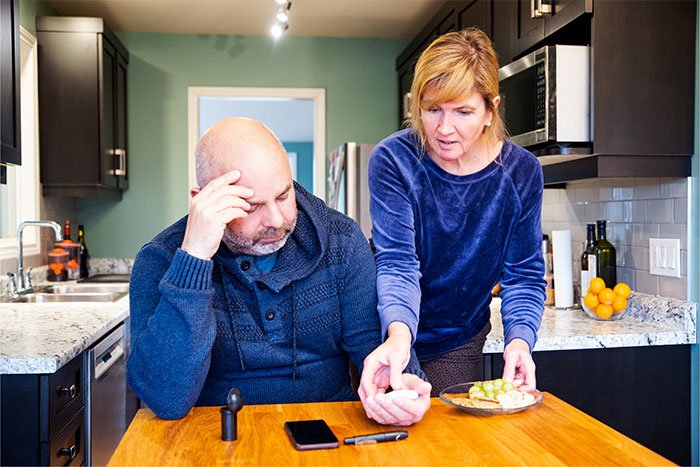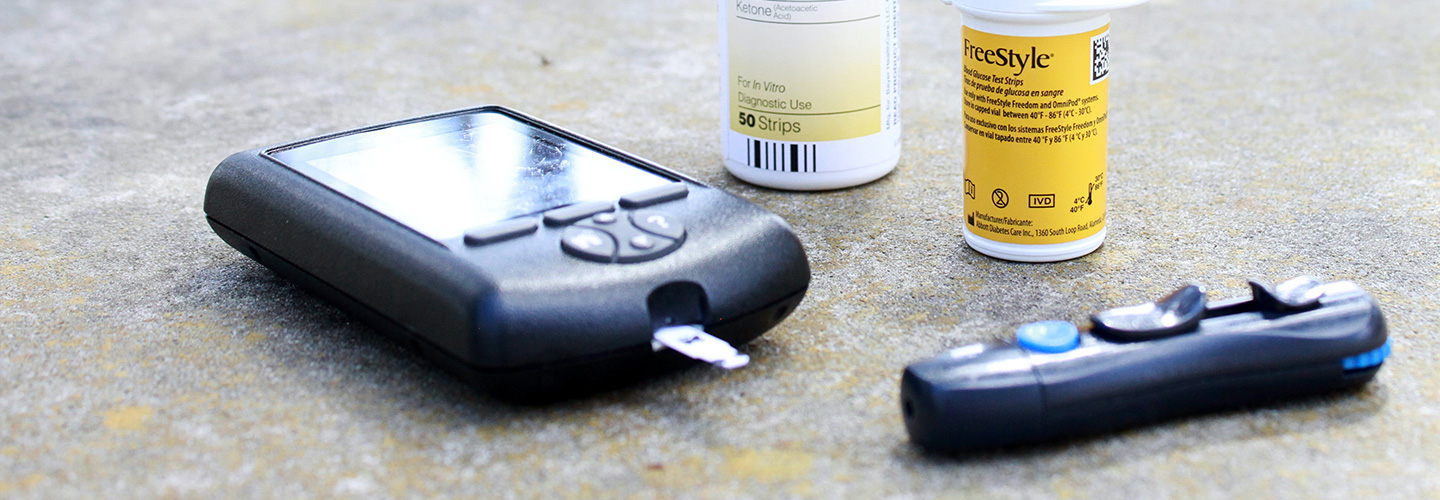What is Medication Adherence?
Simply put, medication adherence means taking medications correctly. It is the extent to which patients take medication as prescribed by their doctors. Taking medication correctly incorporates several different aspects, including:
- Getting prescriptions filled
- Understanding the medications’ directions
- Taking the correct dosage
- Taking medication at the right frequency
- Being persistent and consistent with taking medication
For people living with diabetes, medication adherence is a critical aspect of managing the condition and living healthier lives.
Positive Clinical Outcomes
The most important outcome of increased medication adherence is, of course, healthier people with improved qualities of life. But the benefits of diabetes medication adherence can also be seen across the health system, from medical professionals to member health plan providers to the pharmaceutical and device industries.
- Adherence is linked to positive clinical outcomes
- Adherence can lead to lower per-patient costs as positive health outcomes increase
- Low adherence leads to increased morbidity and mortality
- Low adherence is associated with greater risk of major adverse cardiac event

Non-Adherence
Nonadherence is not as simple as patients choosing not to take their medications. There is a difference between nonintentional and intentional nonadherence. Many different factors, including socioeconomic factors, health care system factors, and medical comorbidities, can all impact adherence. Non-adherence can take several different forms:
- Initiation: the individual fails to fill their prescription or begin their treatment
- Implementation: the patient doesn’t take the medication as prescribed (delayed or incorrect dosages), making the medication then appear ineffective
- Persistence: The individual starts out taking their medication, but eventually discontinues their treatment
Estimated $637 billion revenue is lost globally by pharmaceutical companies due to medication non-adherence. (Source).
Diabetes Medication Adherence Statistics
Various studies on diabetes medication adherence show the true scope of the issue. The following diabetes medication adherence statistics help to provide a context through which to view the impact of noncompliance.
- The total healthcare cost related to poor medication adherence is estimated to be $317 billion annually (American Association of Diabetes Educators)
- 50% of medications for chronic diseases are not taken as prescribed (National Institute of Diabetes and Digestive and Kidney Diseases)
- At least 45% of patients with type 2 diabetes fail to achieve adequate glycemic control (HbA1c <7%) (Poor medication adherence in type 2 diabetes: recognizing the scope of the problem and its key contributors)
- More than 20% of new prescriptions are never filled (American Association of Diabetes Educators)
- Approximately 30% of people with diabetes report missing at least one dose of oral antihyperglycemic medication per month (American Association of Diabetes Educators)
- Poor medication adherence results in up to 69% of medication-related hospital admissions in the U.S. and at least 125,000 deaths per year (American Association of Diabetes Educators)
- Only 13.2% of people with diabetes achieved target levels for blood pressure, cholesterol levels, and glucose control. (American Diabetes Association)
Barriers to Adherence
Each individual faces unique barriers when it comes to diabetes medication adherence. Understanding those barriers enables the entire health system—from medical professionals to insurance providers to the pharmaceutical industry—more easily help patients overcome those barriers. Here are some of the most common barriers to medication adherence faced by diabetes patients.
Lack of acceptance of the diagnosis
People who are struggling to accept their diabetes are much less likely to initiate and adhere to their medication. There are many reasons why someone may initially not accept their diabetes diagnosis. Here are some common reasons for a lack of acceptance:
- The person is asymptomatic or rarely experiences symptoms.
- The person is not educated about diabetes.
- They feel a loss of independence and ability to live life on their terms, so they simply decide to live as if they do not have diabetes.
Feeling fearful or overwhelmed
Fear is another adherence barrier and common emotion patients experience after receiving a diabetes diagnosis. The fear can take many shapes, including:
- Fear of the unknown—what is going to happen to me?
- Fear of managing their condition
- Fear of administering their medication or checking their blood sugar levels
- Fear of increased doctor visits
- Fear of side effects

Incorrect perceptions of condition or medication
Often, general practitioners who don’t specialize in diabetes don’t have the time or training to properly educate patients on their condition. This can lead the patient to develop misconceptions about their disease.
One common misconception is that insulin only needs to be taken when the person is experiencing symptoms or when their blood tests raise a red flag. Patients may gauge the necessity of treatment based on their perception of their current state, rather than following the recommendations of a health professional.
While fear or denial can play a role in this pattern, a more common challenge is the patient not fully understanding either the prescription instructions or the purpose of the medication they are taking.
Struggling with financial resources
Diabetes is a disease that disproportionately affects low-income individuals. At the same time, diabetes self-management presents some of the biggest challenges for people who struggle with financial resources.
A low-income status affects nearly every aspect of diabetes self-management. Low-income individuals may not always have reliable access to their medications. Other potential barriers that can affect adherence include food insecurity, lack of access to safe and affordable exercise, and low health literacy.

Literacy or language barrier
High-risk populations of diabetes patients may face barriers of comprehension when it comes to adhering to their medication. Low health literacy or a language barrier with a care provider can lead to a lack of understanding of the importance of medication and how it affects diabetes management, including:
- Purpose of the medication
- Prescribed dosage amounts and timing
- Medication identification: differentiating between different medications and their functions
- Reducing/skipping doctor or pharmacy visits (feeling that the lack of understanding makes these visits pointless)
Challenges with lifestyle changes
When faced with a life-altering diagnosis, it can often be difficult to accept that certain lifestyle changes need to be made to properly manage the condition. Many diabetes patients struggle with changing their diets and exercise habits when first faced with the diagnosis. This challenge also extends to taking their medication. It can be difficult for a newly diagnosed diabetes patient to incorporate a new daily medication regimen into their routine, and get used to keeping the necessary supplies with them at all times.
Access to care
For a variety of different reasons, many people living with diabetes struggle with access to the necessary care to properly manage their conditions. Lack of access to care can include:
- Lack of availability of services
- Prohibitive healthcare and prescription costs
- Lack of patient mobility
- Difficulty getting to the doctor or pharmacy

Predictors & Characteristics of Poor Medication Adherence
How to Increase Diabetes Medication Adherence
Clearly, the issue of medication adherence for people living with diabetes is deep, complex, and multifaceted. The most important thing for anyone within the healthcare system to bear in mind is that diabetes medication adherence isn’t only a metric or statistic to be tracked and monitored; it affects real people living in the world every day—people with hopes, fears, goals, and challenges who are struggling to manage a chronic illness.
Medication adherence is most challenging for at-risk and underserved populations. These are the people who face the most barriers when it comes to adherence for diabetes medication.
Approximately 50% of patients do not take their medications as prescribed (Source).
Achieving positive health outcomes requires more than education; it requires deep behavioral and mindset changes. But as we have seen, making these changes is challenging for a wide variety of reasons. Only through the caring experience of human connection can underserved diabetes populations begin to self-manage their conditions.
Certified Diabetes Care and Education Specialists
Certified Diabetes Care and Education Specialists (CDCESs) are health professionals who work one-on-one with patients to help identify their personal barriers and teach strategies for overcoming them. CDCESs educate, support, and advocate for people affected by diabetes, as well as promote self management to achieve individualized behavior and treatment goals.
CDCESs can help people living with diabetes in many ways. Successful self-management involves a broad range of topics, and it is the CDCES goal to identify the key areas for improvement facing each individual. CDCESs can help individuals focus on:
- Medication
- Nutrition
- Exercise
- Coping skills
With a personalized approach, people living with diabetes can become empowered to improve their lives and achieve measurably improved health outcomes.

Cecelia Health’s Approach
At Cecelia Health, our personalized, technology-enabled, scalable approach has been proven to increase medication adherence in diabetes patients. Cecelia Health collaborates with health plans and pharmaceutical and medical device companies to improve the health outcomes of diabetes populations.
We combine the clinical coaching of an expert CDCES clinician and proprietary technology to deliver a personalized coaching program to improve self-management and drive behavior change.
With the care and attention of a CDCES, we can strengthen the education for all patients, and meet them where they are to make significant positive changes. Cecelia Health’s program complements and enhances existing disease management programs to improve results.
Proven Clinical Outcomes
- 53% of participants’ HbA1c drops below 8
- 88% medication adherence at 6-month follow-up
- 3X annual return on investment on average
- 1-2 point drop in A1C after 3 months of coaching (studies show that a 1-2 point drop in A1C reduces risk of heart attack, stroke, and death from cardiovascular disease by 57%)
- 35% enrollment rate of identified patients
- 95%+ patient satisfaction rate
